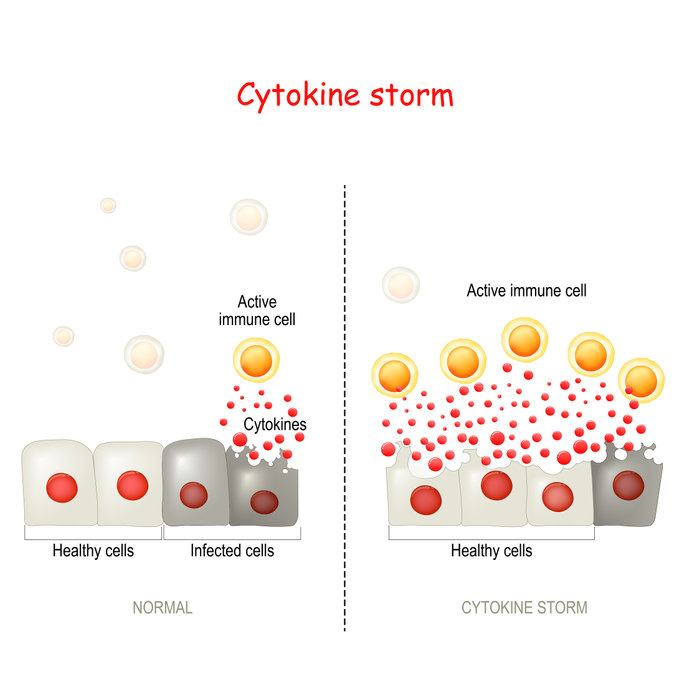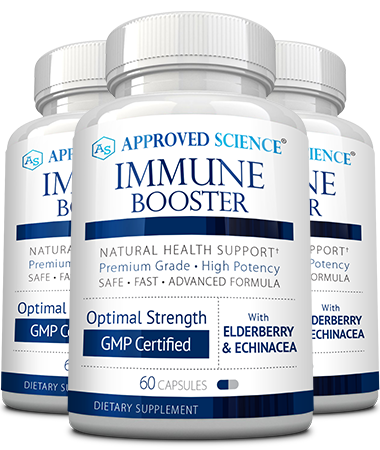Aging and health are inevitably intertwined and common conditions, such as hearing loss and body pains, are more likely to arise as we grow older. The more medical professionals and scientists assess the effects of aging on the body, the more evidence is brought to light on how aging causes these conditions and increases the risk of developing several internal issues. It is, therefore, essential that we continue to look after our health and wellbeing as we age and stay informed on the recent research into aging and its effects on the body. In this article, we discuss a relatively new concept that you may be unaware of; inflammaging.
We will discuss the role that inflammaging has on the body as well as ways to prevent it from causing minor and major health conditions in the future.
What Is Inflammaging?
According to authoritative resources, inflammaging refers to chronic low-grade inflammation that becomes more prevalent with age. Inflammaging is now considered a key contributor to several biological health conditions that occur as we grow older.
How Aging Causes Inflammaging
Inflammation affects people daily and although inflammatory responses help the body recover from injury or prevent viruses and bacteria from causing severe bodily reactions, more prominent inflammation can onset common health conditions.

The inflammation response system is impacted as the body ages and the immune system weakens. As this happens, the body’s production of pro-inflammatory and anti-inflammatory factors is thrown off balance. The result is an increase in the production of pro-inflammatory cytokines that inadvertently leads to the development of chronic inflammation known as inflammaging.
The excessive presence of inflammation as a result of inflammaging can impact several internal functions and, thus, increase an individual’s risk of experience severe age-related health conditions.
Common Symptoms Of Inflammaging
It is important to be aware of the common symptoms of inflammaging should one wish to make healthy lifestyle choices to minimize its impact on the body as one grows older. We outline a few key symptoms of inflammation that may persist among individuals’ that experience inflammaging:
Body Pain
Aches and pains are the most common signs of inflammation as a result of age. An elevation in the presence of inflammatory cytokines leads to redness, swelling, and stiffness as these proteins attack the muscles and joints. Inflammation-related body pain is particularly discernible if you experience aches and pains in the muscles and joints without having performed any strenuous exercise.
Skin Irritation
Inflammation leads to skin irritation and even eczema or psoriasis as immune system hypersensitivity raises the levels of inflammatory cells in the body. These heightened levels of inflammatory cells result in the cells triggering skin rashes.
Poor Digestion
Bloating, abominable pain and constipation are typical signs that one may suffer from chronic inflammation. Digestive issues such as leaky gut syndrome are common outcomes of inflammaging as bacteria leaks through the intestinal wall due to poor immune functioning.
How To Combat Inflammaging
With an understanding of the common symptoms of inflammaging as well as the knowledge that inflammation-related issues are more likely to occur with age, one can confidently practice several health habits to combat inflammaging and associated health conditions. Below, we explore the key well-being strategies that you should consider to prevent the onset of chronic inflammation.
Nutritional Support

Over and above making healthy lifestyle choices, individuals may turn to nutritional support in an effort to reduce inflammation and support the immune system. There are an array of supplements on the market that work to promote stronger immunity and fight inflammation. Approved Science® Immune Booster is a powerful immune system supplement that provides the body with a range of beneficial substances and minerals including Vitamin C and Elderberry. Studies suggest that Vitamin C balances cell production and, thus, fights inflammation that can damage the immune system. Authoritative resources also recommend Elderberry as an immune booster that may minimize the likelihood of experienced inflammaging. Approved Science® also manufactures Jointprin™ which provides anti-inflammatory ingredients that can reduce symptoms associated with inflammaging such as pains and aches.
Regular Exercise
One should combine nutritional support with regular exercise to see the best inflammaging-combatting effects. A recent study found that frequent exercising prevented the onset of inflammaging and chronic age-related inflammation issues. The evidence that exercise can support overall health and vitality as well as reduce inflammation continues to grow and it all points towards exercise as a key regulator of anti-inflammatory and pro-inflammatory production within the body. The following exercise regimes may be beneficial to add to your daily routine:
- Yoga stretches or pilates
- Running or walking
- Weight lifting or light gyming
- Cardiovascular exercises that increase your heart rate
Positive Dietary Habits
A positive and balanced diet does wonder for overall wellbeing and supports your internal systems, particularly your immune system and your body’s ability to balance the production of inflammatory cells. One such dietary recommendation that can help your immune system is to cut out carbohydrates and refined sugars. These food groups have a negative impact on the immune system as they cause a spike in sugar levels which suppresses your immune strength. This can lead to elevated inflammation and subsequent chronic inflammaging in the long term. Click here to read up more on how carbohydrates hurt your immune health.
Over and above cutting out carbohydrates, consider eating more of the following foods that have shown to support the immune system:
- Citrus fruits
- Bell peppers, red
- Broccoli and cauliflower
- Garlic and ginger
- Spinach and leafy greens
- Almonds
- Sunflower seeds
- Turmeric
- Green tea
Quality Sleep
More and more evidence points towards a lack of sleep as a potential cause of poor immune function. Sleep is responsible for balancing the production of inflammation cells within the body and, therefore, a lack of sleep may create an imbalance that can lead to inflammation. This inflammation that, if left unchecked may become inflammaging, puts strain on one’s immune function and can lead to more severe health conditions.
Plenty Of Water
Drinking plenty of water helps your body as oxygen is pivotal in supporting proper blood flow. Proper blood flow allows all internal operations to work effectively as well as supports immune strength and the balanced production of anti-inflammatory and pro-inflammatory cells. Hence, individuals that consume plenty of water should minimize their risk of inflammaging.
The Bottom Line
Inflammaging is becoming a more prominent condition that affects us as we grow older and it is critical that we implement healthy habits to balance inflammation and prevent the condition from causing more serious conditions. By supporting our lifestyle with supplements, sticking to a healthy and balanced diet, exercising regularly, getting enough quality sleep, and drinking plenty of water, we can reduce the risk of inflammaging and live a more wholesome life.

